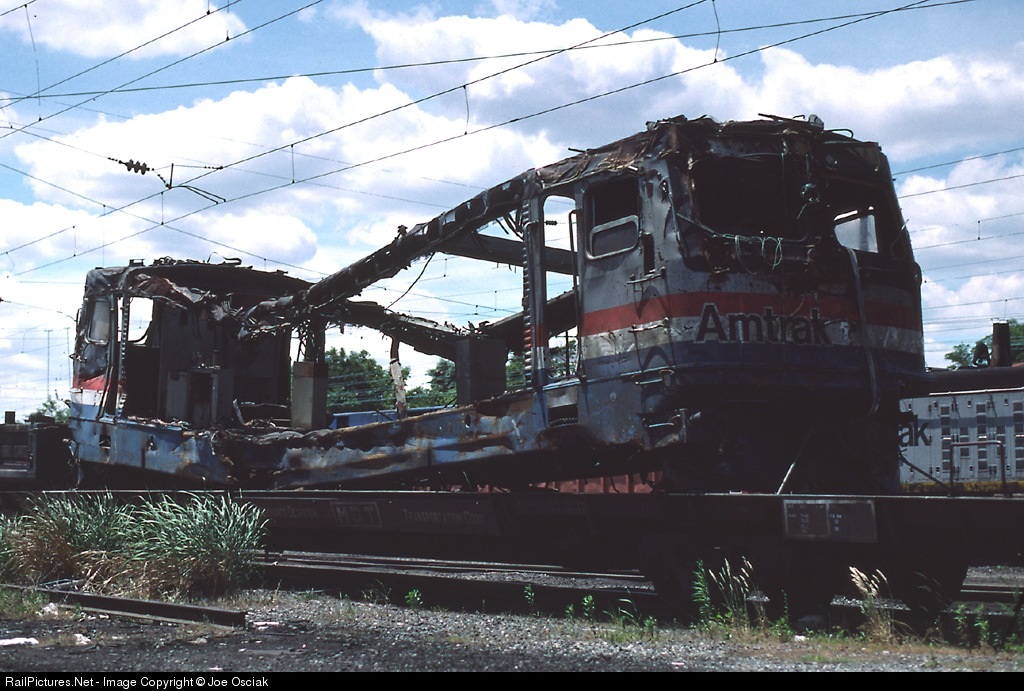1987 Maryland train collision

Aerial view of the
Colonial after the accident
Details
Date: January 4, 1987; 1:30 PM
Location: Chase, Maryland
Coordinates: 39°22'35"N 76°21'25"W
Country: United States
Line: Northeast Corridor
Operators: Amtrak, Conrail
Incident type: Collision
Cause: Engineer error, Noncompliance with stop Signal, excessive speed preventable by ATP/ATC and other safety measures
Statistics
Trains: 2
Passengers: 660
Deaths: 16
Injured: 164
The
1987 Maryland train collision occurred at 1:30 pm on January 4, 1987, on Amtrak's Northeast Corridor main line. The site of the crash was in the Chase community in eastern Baltimore County, Maryland, United States, at Gunpowder Interlocking, about 18 miles (29 km) northeast of Baltimore. Amtrak train 94, the Colonial, (now part of the Northeast Regional) traveling north from Washington, D.C., to Boston, crashed into a set of Conrail locomotives running light (without freight cars), and which had fouled (entered) the mainline. Train 94's speed at the time of the collision was estimated at about 108 miles per hour (174 km/h). Fourteen passengers on the Amtrak train were killed, as well as the Amtrak engineer and lounge car attendant.
The Conrail locomotive crew failed to stop at the signals before Gunpowder Interlocking, and it was determined that the accident would have been avoided had they done so. Additionally, they tested positive for marijuana. The engineer served four years in a Maryland prison for his role in the crash. In the aftermath, drug and alcohol procedures for train crews were overhauled by the Federal Railroad Administration (FRA), which is charged with rail safety. In 1991, prompted in large part by the Chase Maryland crash, the United States Congress took even broader action and authorized mandatory random drug-testing for all employees in "safety-sensitive" jobs in all industries regulated by the U.S. Department of Transportation (DOT) including trucking, bus carriers and rail systems. Additionally, all trains operating on the high-speed Northeast Corridor are now equipped with automatic cab signalling with an automatic train stop feature. Several safety issues were identified with Amfleet cars as well.
At the time, the wreck was the deadliest in Amtrak's history. It was surpassed in 1993, by Big Bayou Canot rail accident in Alabama that killed 47 and injured another 103.
{snip}
External links
• Picture of AEM-7 Amtrak #903 in Wilmington, Baltimore after the crash -
http://www.railpictures.net/photo/78276/
{snip}
This is not the only transportation disaster that has happened in Chase.

